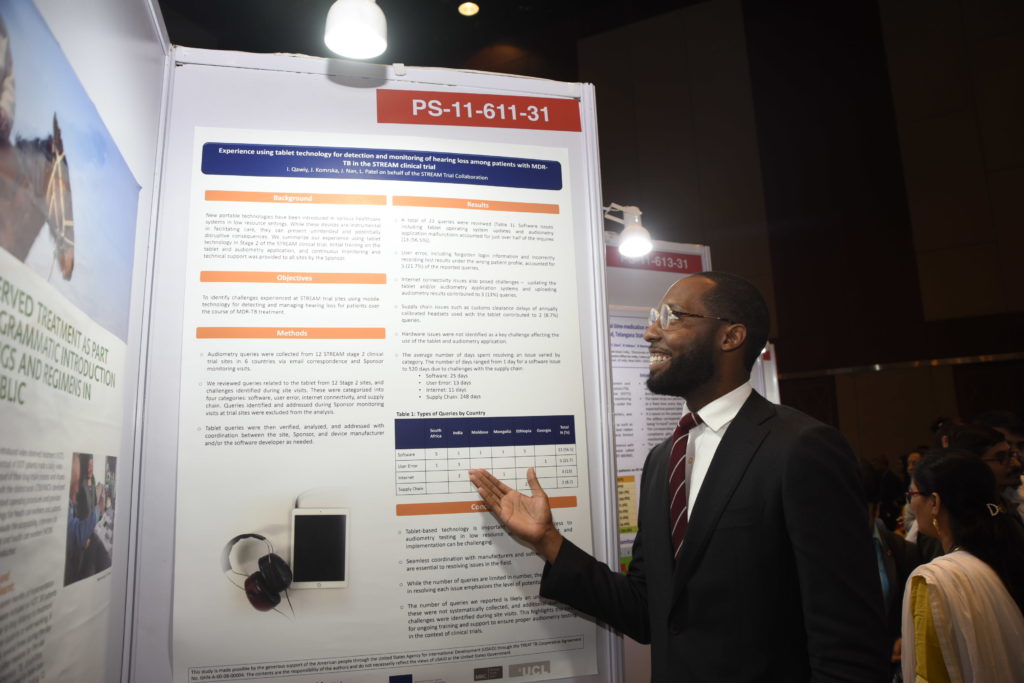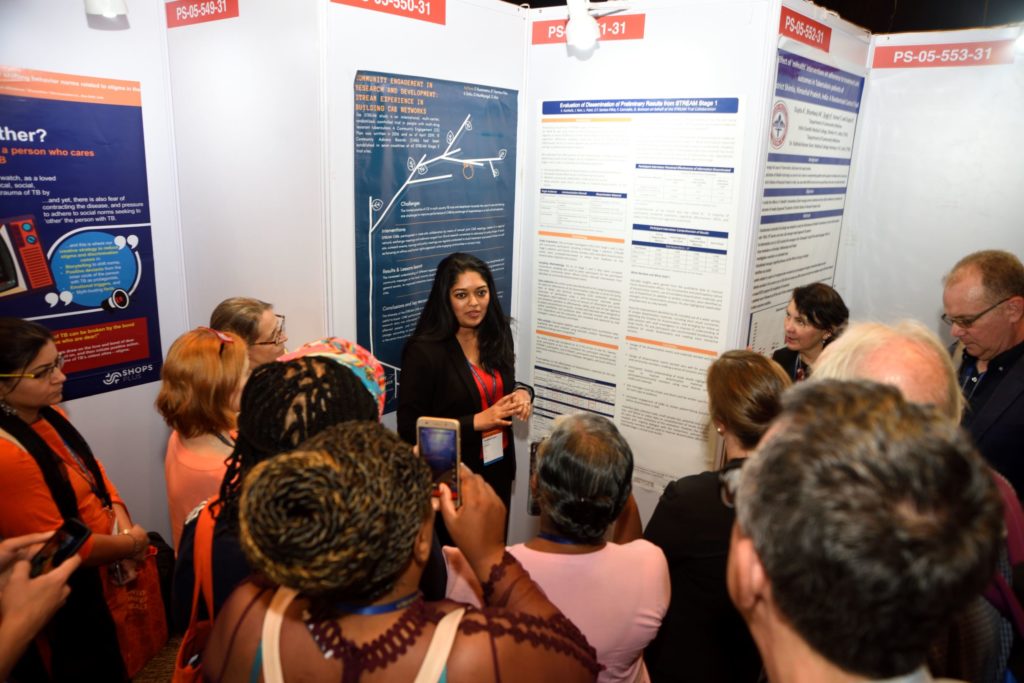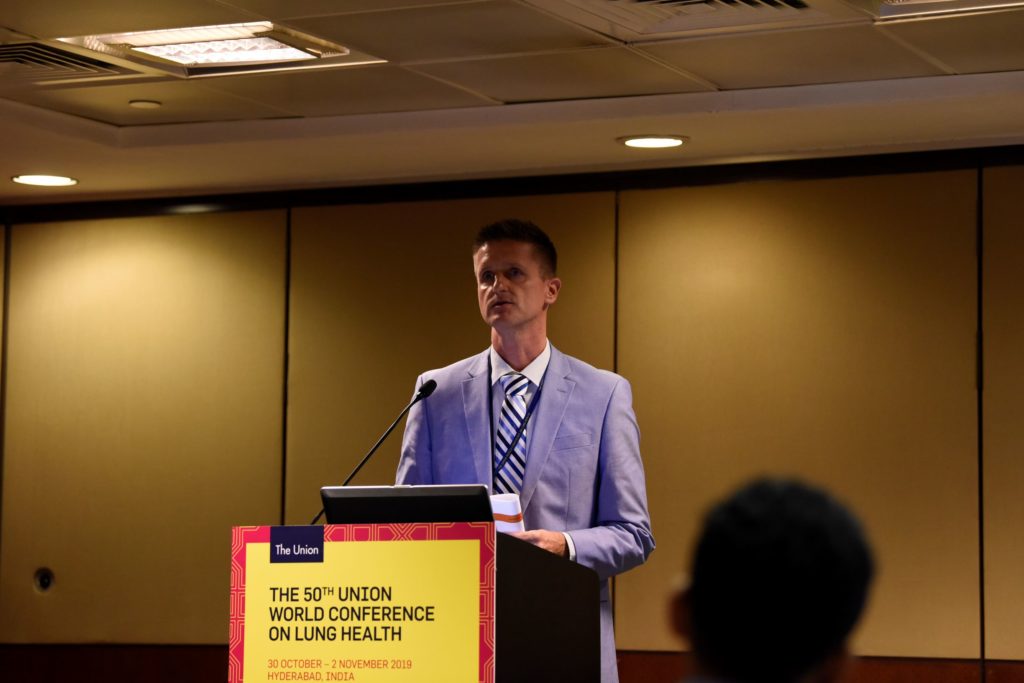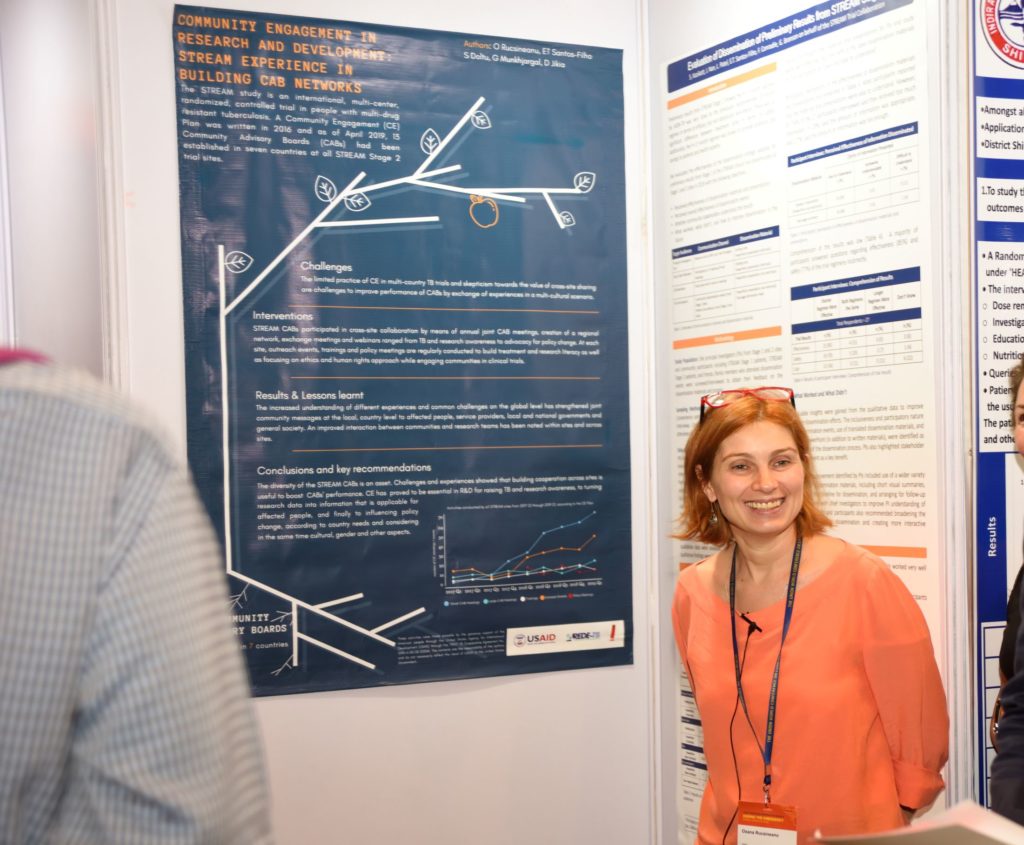Last week, the TREAT TB project team joined delegates from around the world to attend the Union’s 50th World Conference on Lung Health in Hyderabad, India. In the two days prior to the conference, more than 30 participants from 13 trial sites in seven countries attended a two-day community engagement workshop to develop a collective vision for their work in connection with the STREAM clinical trial
The four-day scientific conference program was also a great platform for TREAT TB collaborators to showcase their ongoing work on the STREAM clinical trial.
TREAT TB events at the World Lung Conference included:
- Community engagement in research and development: STREAM experience in building CABs networking – Oxana Ruscineanu
- Experience using tablet technology for detection and monitoring of hearing loss among patients with MDR-TB in the STREAM clinical trial – Ishmael Qawiy
- Evaluation of dissemination of preliminary results from STREAM stage 1 – Samantha Kozikott
- Predictive factors of QT prolongation in the STREAM 1 trial – Gareth Hughes
- Examining the efficacy of the short MDR-TB regimen: alternative analyses from the STREAM trial – Patrick Phillips
- Health workers perception of the shorter regimen in MDR-TB treatment: qualitative evidence from Ethiopia – Laura Rosu
- Efficacy of genotype MTBDRsl assay to exclude fluoroquinolone and second-line injectable drug resistant Mycobacterium tuberculosis in a multidrug-resistant tuberculosis clinical trial –Gabriela Torrea
- TB medicine costs for rifampin-resistant tuberculosis treated with a shorter regimen in a clinical trial setting – Jan Komrska
- Baseline predictors of unfavourable outcome in the short MDR-TB regimen: exploratory analyses from the STREAM trial – Saiam Ahmed
- QT prolongation and its evolution over time in the STREAM 1 trial – Gareth Hughes
Vital Strategies Research Division employees showcased their work during the following events.
Ishmael Qawiy, a pharmacist in Vital Strategies’ Research Division, presented on how tablet technology can be used for detection and monitoring of hearing loss among patients with MDR-TB. While new portable technologies introduced in healthcare systems in low resource settings are instrumental in facilitating care, they can present unintended and potentially disruptive consequences. This highlights the need for ongoing training and support to ensure proper audiometry testing in the context of clinical trials.

Samantha Kozikott, a Technical Officer from Vital Strategies’ Research Division, presented findings from an evaluation of the dissemination of preliminary results from STREAM Stage 1. The evaluation assessed the overall dissemination strategy, the dissemination materials used, and whether trial participants understood the results in order to improve dissemination of results for Stage 2 of the trial. The findings showed that, while the strategy and materials were generally good, there is room for improvement to ensure participants understand trial results. Despite challenges with comprehension of the results, Stage 1 dissemination events played an important role in building trust between researchers and participants and empowering local communities to continue participating in the research cycle.

Jan Komrska, a Senior Pharmacist in Vital Strategies’ Research Division, presented an oral abstract entitled “TB medicine costs for rifampin-resistant tuberculosis treated with a shorter regimen in a clinical trial setting.” While access to TB medicines has improved, it remains challenging due to the high cost attributed to certain medicines. Findings show that although costs have reduced, more efficient supply chains may help further reduce costs.

Oxana Rucsineanu, the STREAM Community Advisory Board (CAB) coordinator from Moldova, presented on the importance of building global CAB networks to improve community engagement in the STREAM trial. Community engagement is essential for raising awareness of TB and TB research, making technical information about TB and research accessible to participants and affected communities, and using research results to influence policy change. The diversity of the STREAM Trial CABs is an asset and Oxana underscored that building cooperation across sites has been important for improving CAB performance and sustainability. She also highlighted the important role that positive interaction between communities and research teams has played in the success of STREAM community engagement.

We are especially proud to have a CAB coordinator take part as a presenter in The Union’s 50th World Conference on Lung Health. Oxana’s feedback created a dialogue about research between communities, study teams, and global stakeholders. This is one of the many ways CE helps ensure communities are at the heart of clinical trials and that research remains accountable to communities. To read more about TREAT TB and STREAM’s work in community engagement, click here.
